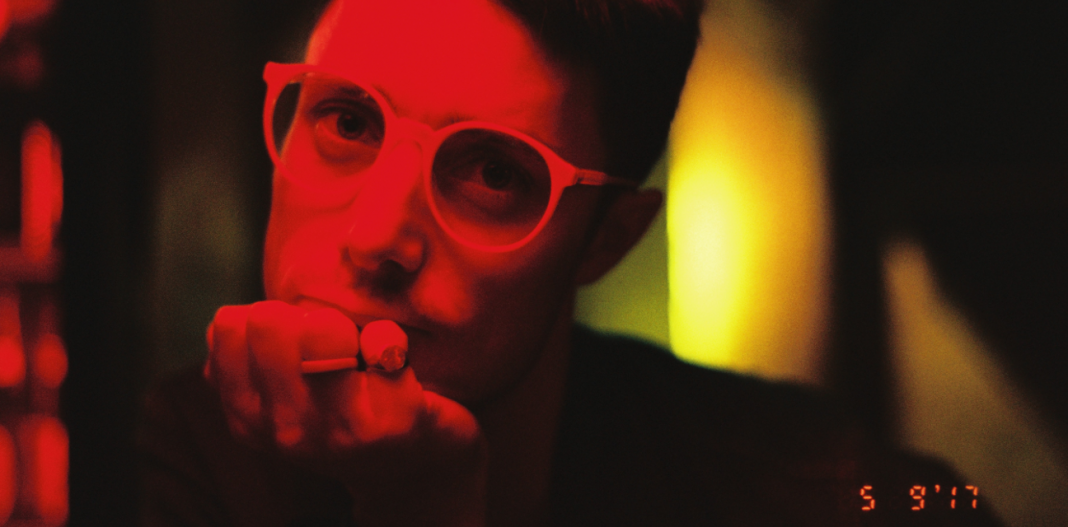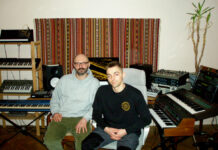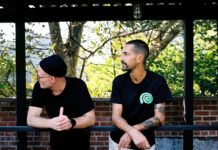Which kind of leads us to the next question. The approach “anything can be techno” isn’t only what sucked you into House and Techno in the first place, it also seems to be the premise of your DJing. How do you connect the dots between the different styles, genres, and emotions of your records?
Everything is connected emotionally. I think what I pay attention to is just a physical response to things in this world. So, the way I feel about something that you will hear is very clearly in one genre, say it’s dub record, or a jazz record, the same feeling you might have to a record that is very clearly techno in a traditional sense – or electro, or whatever. And so, to me, those two records are kind of hitting the same thing.
Looking at your past and upcoming shows it seems like you enjoy playing back-to-back a lot?
I get asked a lot. I mean, I like playing alone, but it depends. I only play back-to-back with close friends. I always enjoyed spinning with friends, but I don’t look for it. Obviously, I have a very close relationship with Objekt, and we always do stuff together. And people like Ben UFO and Shanti Celeste I’m just very close with.
Considering that you get asked a lot, there must be something about you then, that makes you a nice DJ partner?
I think it’s because I’m versatile. I like to listen. It’s the way I DJ – I very much engage with the crowd, I’m not there to dictate a vision. I’m there to try and come up with something together. So, I think maybe that makes me quite useful to play together with.
How do approach these sets? Do you prepare for them any different from solo sets?
I don’t really prepare for DJ sets. I listen to music when I’m in my studio, and I’m always listening to old records I have, listening to new music. I engage with music a lot throughout my day and my life. And I guess that’s the only preparation I have.
Moving things to the studio – how does your workflow look like, do you have any routines?
My routine is very important to me, on a kind of macro-sense: Always turn up there from about 10am until 7pm. And I use very shitty basic equipment that I’ve had for many years, because I don’t care about gear, I don’t really care about technology. The most important thing for me is just knowing I can express whatever idea I have very easily. For that, equipment that you’ve had for a long time is quite important. I got all this equipment when I was pretty poor. And if I could make good music then, why should I change it? Just because maybe now I can afford to change it? For me, that’s not a good enough reason to change your process and your workflow.
And what is this equipment that you rely on?
I never really talk about that. (laughs) The best advice I can give is just to find something that you can afford, don’t worry so much about the quality of the sound it makes, and learn how to use it. And if once you’ve learned how to use it, you’re like “Actually, I really don’t like this sound,” then maybe sell it and try something else. But that relationship is important. Otherwise, what are you doing? You’re just into gear. And that’s a totally different thing to making music. That’s a pursuit in itself. And there’s a lot of people who are into that and who fetishise this stuff. But to me, that has nothing to do with creativity. That’s to do with consumerism.
Do you ever feel stuck in the creative process?
I think that’s why I don’t limit myself to music. Because if you’re not in the mood or nothing’s really happening for you in one area I just walk away. And usually when I come back to it something’s changed. I might say, this week, I’m just going to read and I’ll go and look at some other people’s work. Or now I get to travel so much, I usually make time to engage with exhibitions and whatever in cities that I visit. Things always feel like they’re changing, and there’s new impetus. I’ve never felt totally stuck, no. Thankfully, touch wood.





